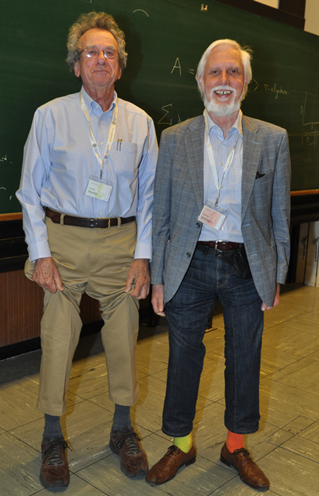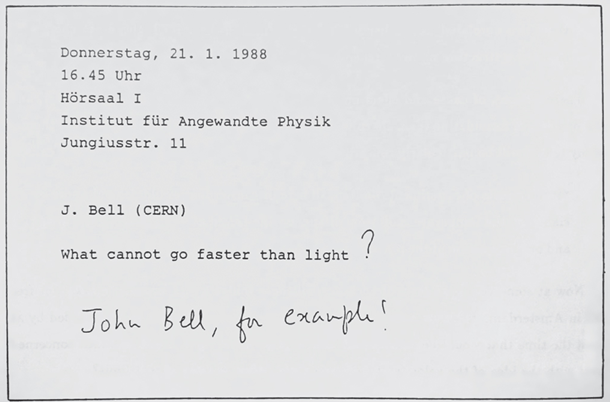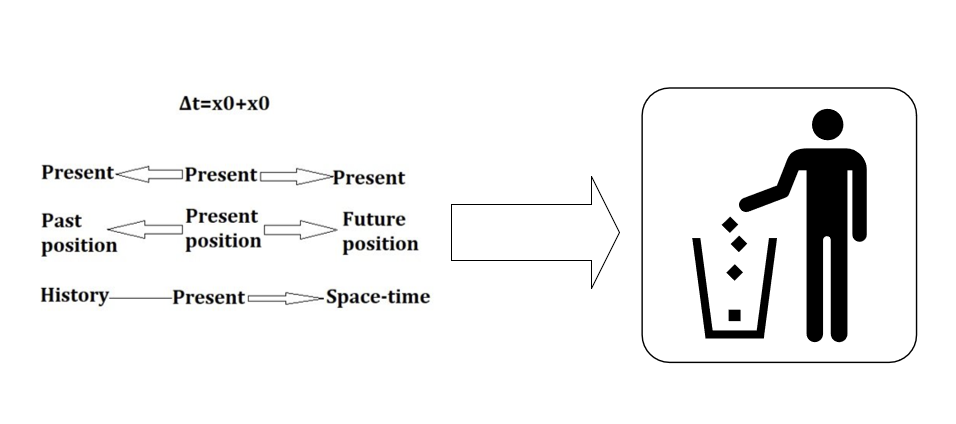Leaderboard
Popular Content
Showing content with the highest reputation on 09/22/22 in all areas
-
Ned has been banned. They seemed adamantly opposed to the purpose of learning science.2 points
-
Our Australian system of voting is a "preferential" (transferable?) ballot, with some variations between States and Federal and between upper House and lower (Senate vs House of Reps) - some require all candidates numbered, some allow leaving blank spaces. It is also compulsory to vote... well, to turn up or post a ballot; it can be left blank. I don't find it a great burden and it does give a sense of confidence that the results are truly representative. We number our choices, from first preference to last. When votes are counted the candidate with the least first preference votes is eliminated and the ballots that voted for them are re-counted, with their second choice used - and so on until there are two candidates and one winner. Upper House is on a State sized "electorate" and that gives opportunities to smaller parties to get representation in proportion to their popularity. Lower House is many geographic electorates and favors major parties by winner takes all. I think similar to US and other nations. Some countries require absolute majority (>50%) to win and preferential voting would prevent a need to go back around for a second election where there are more than 2 candidates and none reach that threshold. I read about follow up elections and think our preferential voting is better than that. Other places it is the candidate with the highest vote - even if less than 50% - that wins. I like preferential voting but don't really know if it is better or gives outcomes different than a simple highest vote wins - but it does allow "protest" votes for independent or minor party candidates without losing the option to choose between the major party candidates and I think that does facilitate sending a message about levels of community concern about particular issues to major parties. And most recently we have seen the major parties lose seats to independents and minor parties - the rise of The Greens and "Teals" (who are centre-right leaning climate action supporting and loosely aligned independents - our conservatives are "blue", so blue mixed with green). I don't know that preferential voting made a lot of difference but it there may have been some protest votes from people who didn't expect them to win, who may have voted for a major party first if they had. Whatever the system used it seems like it is public confidence in it that seems most important. I can't say I have ready solutions (besides Vote!) for where that confidence is absent. We have (for example) Statutory bodies for deciding electoral district boundaries - but that wasn't always the case; we did have a culture of gerrymandering. Perhaps fortunately it was not so entrenched that public opinion could be subverted enough to successfully obstruct doing something about it. Although rural voters do still get more bang for their votes, with smaller voter numbers per electorate - and that favors conservative parties. I should say that for all the good I see from the sorts of government Australia has there is no shortage of serious failing and things to criticise - nor that the trend is always consistently towards doing it better. I see "soft" corruption - undue influence, regulatory capture, partisan media, support for "rent seeking" and favors - as perniciously persistent and problematic. Thus the issue of a standing anti-corruption watchdog at the Federal level is one that could have long reaching consequences. In a roundabout way that could result in less government - the wasteful contracts that go to party supporters that evaded scrutiny for example can end up reduced when there are anti-corruption bodies.2 points
-
https://phys.org/news/2018-02-man-made-earthquake-fracking-895m-faults.html Man-made earthquake risk reduced if fracking is 895m from faults February 27, 2018, Durham University The risk of man-made earthquakes due to fracking is greatly reduced if high-pressure fluid injection used to crack underground rocks is 895m away from faults in the Earth's crust, according to new research.The recommendation, from the ReFINE (Researching Fracking) consortium, is based on published microseismic data from 109 fracking operations carried out predominantly in the USA.Read more at: https://phys.org/news/2018-02-man-made-earthquake-fracking-895m-faults.html#jCp ::::::::::::::::::::::::::::::::::::::::::::::::::::::::::::::::::::::::::::::::::::::::::::::::::::::::::::::: THE PAPER: https://link.springer.com/article/10.1007%2Fs40948-018-0081-y Abstract: Induced earthquakes and shallow groundwater contamination are two environmental concerns associated with the interaction between hydraulic fracturing (fracking) operations and geological faults. To reduce the risks of fault reactivation and faults acting as fluid conduits to groundwater resources, fluid injection needs to be carried out at sufficient distances away from faults. Westwood et al. (Geomechanics and geophysics for geo-energy and geo-resources, pp 1–13, 2017) suggest a maximum horizontal respect distance of 433 m to faults using numerical modelling, but its usefulness is limited by the model parameters. An alternative approach is to use microseismic data to infer the extent of fracture propagation and stress changes. Using published microseismic data from 109 fracking operations and analysis of variance, we find that the empirical risk of detecting microseismicity in shale beyond a horizontal distance of 433 m is 32% and beyond 895 m is 1%. The extent of fracture propagation and stress changes is likely a result of operational parameters, borehole orientation, local geological factors, and the regional stress state. We suggest a horizontal respect distance of 895 m between horizontal boreholes orientated perpendicular to the maximum horizontal stress direction and faults optimally orientated for failure under the regional stress state.1 point
-
Much of the major North Sea Gasfield infrastructure was installed in the late seventies and designed for a 25 year lifespan. At a pinch, much will last a decade or so longer, but particularly in a marine environment, corrosion will eventually take its toll. So if a 30+ year old facility is decommissioned, there's no point in mothballing it for possible future reuse. It's far more economic to just make it safe and let it rot. In practice, reopening an abandoned field requires a pretty well total infrastructure rebuild.1 point
-
If they want more energy, cheaply and fast, they ought to be erecting wind turbines and encouraging farmers to put solar panels in the fields instead of trying to ban the practice. That could make a difference within 18 months, if they can bypass the planning process for an energy emergency. But they are far right fuckwits, unfortunately. (Rees-Mogg as Energy Minister? Seriously?) My understanding is that some abandoned N Sea fields - which would be economic once more at today's stratospheric prices - could be restarted a lot faster than 5 years, but I don't have chapter and verse, I'm afraid.1 point
-
I don't think explosives are used, are they? My understanding is it is done via hydraulic pressure. An article in yesterday's Guardian, from a former geologist for Cuadrilla, expressed the view that rocks in the UK are too heavily faulted for there to be many contiguous reserves, big enough to be economically recoverable. The current boss of Cuadrilla, interviewed today on R4, seemed more sanguine. However his estimate of recoverable reserves seemed to be 10x that of the British Geological Survey. I can't find numbers on this, unfortunately. But it seems there is no consensus on the size of the prize. What I have found is papers on the BGS report on induced seismicity: https://www.gov.uk/government/publications/review-of-the-geological-science-of-shale-gas-fracturing The other things to bear in mind, apart from induced seismicity, are the long lead time before gas from these new sources can enter the market (>5 years, typically) and the fact that when they do so, they will be priced at the global market price, so they will not make supplies any cheaper, though they can add to security of supply.1 point
-
To some extent the embrace of anarchism (in the less bomb-wielding sense being discussed here) is dependent on aspects of personality that are not homogeneous in human society. While some people do value a high level of freedom and personal autonomy (and, if they are disciplined in their view, are willing to accept the decrease in personal security and increased social clash of values that might accompany this), there are others who crave a high level of "law and order" and a simplified nonpluralistic culture that has to be imposed by an authoritarian leader. They may crave a society that is parental in its control and top-down decision-making. Right-wing evangelical Christians, for example, often express the desire to have all submit to a divine will and be ruled by a theocratic ruler who will implement this. They wish for a State that acts in loco parentis for the same reason they prefer a religion whose authority structure is modeled (as Freud and many others pointed out) on that of childhood. Many people are, contra Benjamin Franklin's famous quote, quite willing to give up some liberty for the sake of security. Then there is the entrepreneurial wealth-seeking personality, which values freedom to conduct business more highly than other freedoms (e.g. social freedoms associated with the Left/Liberal platforms), and is fine with the cognitive dissonance of applauding regulatory freedom while stomping down social freedoms that might threaten their quest for personal enrichment and power (you want labor to stay cheap, cowed by police power, and not be afflicted with too much thinking or exploration of heterodox economic ideas). They may be anarchic in business practices, but authoritarian when it comes to squelching calls for cleaning up their effluents and fumes - often the first to support harsh laws against public demonstrations or class-action suits. However all these billiard balls of temperament collide with each other, it seems to me that truly successful Liberalism lies in the protection of freedom of discourse in education, freedom of the press (and protection of the press from predatory capitalist control), religious freedom, and the preservation of an intellectual life that can subject authority in any form to constant questioning and dissection of its stated aims. That questioning of received wisdom, of authority, seems to me to be at the heart of healthy anarchism, and must be protected by some kind of constitutional structure that can't be altered on a whim, or degraded because the world feels more dangerous than usual. So there's that seeming paradox: good anarchy requires a hardened bombproof structure of law.1 point
-
1 point
-
1 point
-
Google can do that. https://www.google.com/search?q=100+celsius+to+fahrenheit It works with other physical units or currencies, etc. ..this way you can learn something.... Make Excel/Open Office Spreadsheet once, and then you can use it forever.1 point
-
I found this immediately on a web search: https://www.metric-conversions.org/weight-conversion.htm There must be lots of them.1 point
-
But I hope you remember what you said yourself: Bold by me. Is it not finally then? Of couse. I agree, insofar if you mean with a superluminal signal that it implies a physical causal process (which implicitly would mean transfer of energy and momentum), and that people therefore could use for FTL communication. I think one problem (maybe also part of my problem) is the status of the wave function. My opinion: the wave function itself is not a physical object, so e.g. in Bell like experiments with spin, when Alice measures the spin from here side, there is changing nothing on Bob's side. (See the example of the gloves). The wave function is not a physical object*, which simply means that nothing changes because of Alice's measurement. This would then even be stronger than what I just said: there is no superluminal signal. But there is definitely some form of none-locality. But I would say this just rolls out of the formalism of QM, in the end the results of experiments like Aspect's and is followups are often described as 'QM was right again'. * Therefore I cannot by in into the MWI. I understand that. QM is often called the best proven scientific theory we have. But we live in a classical world. And in this classical world it just looks like superluminal information transfer. A classical view must fail terribly. How should I imagine a wave function that is stretched over light years, and then collapses over its total length if we do a measurement at one of it's sides? Maybe that is the reason I like to declare the wave function as not-physical. It is part of a calculation recipe, not of nature. As a (dangerous?) analogy: the imaginary number i does also not represent any physical observation ('I walked 5i kilometers today'). But in our calculation recipes in e.g. QM, it plays an important role. So, and now to cheer up the discussion a little, some pictures: Bertlmann smells tea presented by John Bell. Mermin and Bertlmann (yes, a few years later...) Invitation for a talk by Bell in Vienna, with a student's addition.1 point
-
They're not mutually exclusive in this regard. See also: Busch Light, Natty Light, and other similar AB InBev franken-stein fillers.1 point
-
The clear issue here is the mistake you've made by calling Coors Light a "beer." It's better referred to as beer adjacent swill water. /BeerNerdShade1 point
-
1 point
-
You know how sometimes we find shapes when looking upward into the clouds and those shapes tend to anchor around and get derived from whatever idea just happened to be percolating around in our heads that day? How maybe we had an encounter with a cat that morning, so see one (or a dog) now when glancing skyward? Well, for some of us, thoughts of violent insurrection and threats of extermination are being encountered far more frequently now and… like the encounter with a cat cited above… that becomes what we see upon looking into those same clouds (storm clouds?). Our minds are primed to find it. My point is really just that we all give our own meanings to words and exchanges all of the time. It’s also uncommon… even here at SFN… when the word “anarchy” comes up to then have to clarify to which subtype of anarchy we’re referring, but certainly not unwelcome. Hard to measure, but one proposed benefit of ranked choice / preferential voting is that it alters candidate behavior. Good for voters who don’t feel like they’re wasting their vote and can vote their heart, but also good for which candidates get elevated, namely more moderate ones. Politicians all certainly want to be everyone voters First choice, but to be someone’s 2nd or even 3rd choice requires that candidate not be too extreme nor too far outside of the mainstream. This approach to voting tends to make more moderate candidates more likely to breakaway from the pack and ultimately to win by simply appealing to a larger portion of the population (as well they should in any system audacious enough to wave Democracy as it’s banner). Suspect you already knew this, but perhaps others reading didn’t and I enjoyed sharing it so thanks for the springboard either way.1 point
-
Is that why Communism didn't take off in India? Too much of a strain picking up the spaghettified remains from the pavement? https://www.bbc.com/future/article/20220920-how-indias-lattice-buildings-cool-without-air-con1 point
-
Depends which way you're voting. If you vote for more egalitarian, liberal policies then the common person gains more control over his/her destiny and it's in the anarchist spirit. If not then not. True, but won't you consider that common understandings may have been coloured by centuries (indeed millenia since these arguments were current in ancient Greece) of negative propaganda in service of those who consider themselves born to rule over others? Having said that, the British anarchist tradition that probably began with William Godwin around the turn of the eighteenth century is toward the peaceful end of a spectrum that does extend to the more revolutionary figures of the Russian tradition such as Mikhail Bakunin. Children of their times, and those times were routinely violent. Personally, I'm truer to the Godwin stream and see no paradox whatsoever in participating peacefully in a democratically organised society. Whether this accords with the common understanding or not.1 point
-
Agreed. Agreed, The regulation free idealistic version is a hopeless pipedream. Noted. But this does put you in a minority of the global population, and a particular window in time. Economic growth has funded that comfort zone and it carries no certain future guarantees. Neoliberalism seeks to transfer much of the role of government to employers and landlords : ie a return to more feudal conditions. This is in effect an ultra-authoritarian position - tyranny by proxy - and therefore the polar opposite to the OP subject matter, isn't it? I've always seen universal good secular education as a key factor in the evolution of a healthier society. I hope we get to try that experiment some time. Heinlein is one of the last individuals I'd look to for political guidance. Neither would I seek it from Tolkien as it happens, but does he really strike you as a revolutionary? Can't it be evolutionary? Just a gradual programme of repealing outdated laws that disadvantage minorities for example? Two questions: 1) Do you agree with the idea that the single transferable vote system makes it more difficult for divisive authoritarian politicians to gain power rather than more inclusive compromise-minded candidates. 2) Would you see that as a good thing. You don't have to answer of course. But these are the sort of questions where I see the authoritarian - anarchist spectrum as simply more relevant than traditional right - left politics.1 point
-
The plan is to give vast sums of money to an industry that is already making a huge profit from the turmoil of war. Then to get the taxpayers to pay for that handout. The rationale behind this is that the government is paid by the energy companies.1 point
-
Hmm., no we are not , my diagrams show there is no darkness and you are incorrect . You can experiment with my diagrams in real life and observe that the space is not darkened when in shade . Only the surface is darkened .-1 points
-
Why do you seak attention ? Nothing delusional about real life observations . I guess I am more observant than you .-1 points













